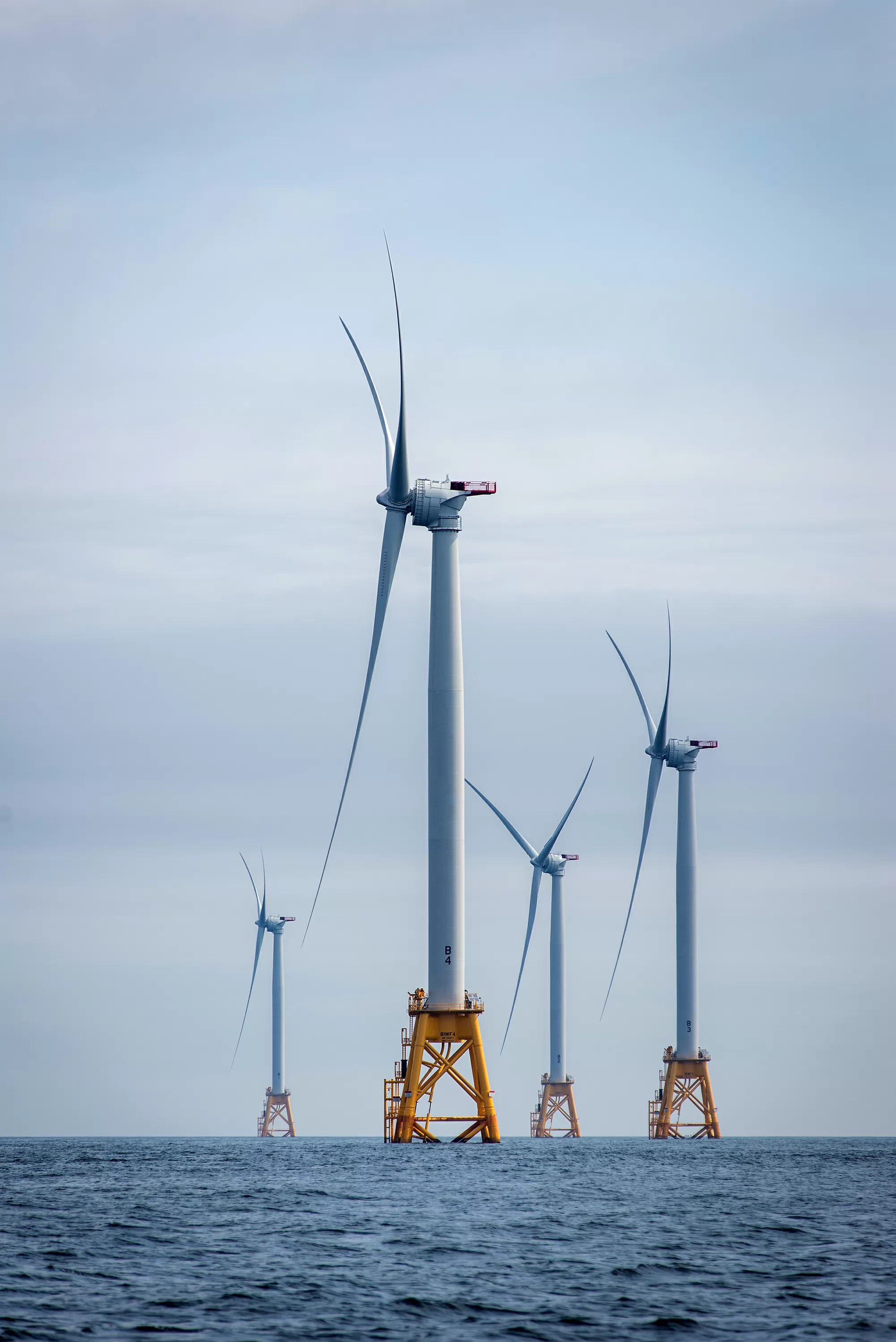As a busy summer resort season for 2021 approached, Rhode Island beach resorts around Watch Hill had a clear view of the Block Island Wind Farm turbines merrily whirling away offshore.
Weeks later four of the five 6-megawatt GE turbines were not moving at all on the first U.S. commercial offshore wind installation – soon noticed by Block Island residents, fishermen and skeptics of offshore wind power.
Offshore wind operator Ørsted, which acquired the Block Island project from original developers Deepwater Wind, says the shutdown was planned. “Our ongoing routine summer maintenance continues at the wind farm,” according to a statement from Chris Raia, a senior account executive with Providence, R.I. public relations firm Duffy & Shanley that represents Ørsted.
“The summer is the optimal time for maintenance, inspections and other necessary repair work. Part of the work being conducted is the repair of stress lines identified by GE in the turbines. We put four turbines on pause as a precautionary measure and carried out a full risk assessment, which showed the turbines are structurally sound. We expect to complete those repairs and all maintenance in the next few weeks as scheduled.”
Ørsted did not release any more details about where the stress lines were found in the turbine structures. The Providence Journal reported the company was looking for stress lines after similar problem were reported in GE turbines in the German North Sea.
Bonnie Brady, executive director of the Long Island Commercial Fishing Association, which opposes expanding new offshore wind power, said local fishermen have reported seeing workers on rope gear inspecting the turbine blades and other components.
The Block Island project has been under intense public scrutiny since it was built in 2016, as a pilot project for much bigger utility-scale plans like the 804 MW Vineyard Wind project that is the first southern New England project with complete federal permits.
Problems emerged in 2019 with the underwater power cable linking Block Island turbines to the mainland grid becoming exposed by sediment movement. A $30 million project by cable owner National Grid to bury the cable deeper that has been paused for the summer tourist season.




